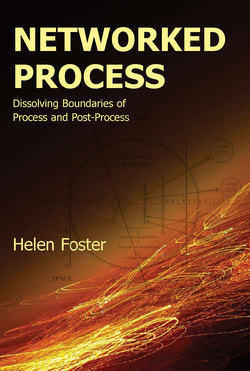Читать книгу Networked Process - Helen Foster - Страница 7
На сайте Литреса книга снята с продажи.
ОглавлениеContents
Illustrations
Acknowledgments
Introduction
1 Profiling Process and Post-Process
Post-Process
Entrance of Post-Process Theory into the Discourse of Rhetoric and Composition
Post-Process Moniker and the Discourse of Rhetoric and Composition
Post-Process Scholarship and the Social/Cultural Turn
Critiques of Process within Strand Two Post-Process
Calls for Reform within Strand Two Post-Process
Repercussions for a Post-Process Profession within Strand Two Post-Process
Post-Process Scholarship that Positions Itself Beyond That of the Social/Cultural Turn
A Few Rejoinders to Thomas Kent’s Edited Post-Process Collection
Process: A Rebuttal
Process Profile
Process, Post-Process: A Point of Stasis
Writing Process/Post-Process Unbound: Networked Process
2 Exploring Networked Process in James Berlin’s Cognitive Maps
Berlin’s Cognitive Maps
“Current-Traditional Rhetoric: Paradigm and Practice”
“Contemporary Composition: The Major Pedagogical Theories”
Writing Instruction in Nineteenth-Century American Colleges
Rhetoric and Reality: Writing Instruction in American Colleges, 1900–1985
“Rhetoric and Ideology in the Writing Class”
The Platform That Berlin Built
3 Networked Subjectivity
Subjectivity: Entering the Network
Articulating Networked Process: Mapping Networked Subjectivity
Space/Time/History
Language/Discourse
Self
Alterity/Other/Horizon
Addressivity/Answerability
Networked Process: Networked Subjectivity and Writing Process(es)
4 Situating Networked Subjectivity
Discursive Relations
Multiple Epistemologies/Multiple Subjectivities
Multiple Literacies/Classroom
5 Textbooks, Writing Program Reforms, Institutionality, and the Public
Audience, Self, and Alterity
Understanding
Language/Discourse
Context and Horizon
Purpose: Addressivity and Answerability
Introduction to “Basic Work and Material Acts: The Ironies, Discrepancies, and Disjunctures of Basic Writing and Mainstreaming”
6 Networked Process and the Long Revolution
Institutional Place(ment)
The Writing Major
Re-visioning Rhetoric and Composition
Disciplinarity
Notes
Works Cited
Index
About the Author
